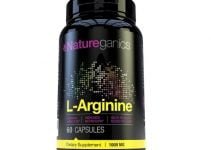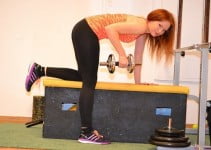During menstruation, the body will shed its uterine lining. Although this is a natural process, a woman will experience bothersome symptoms such as painful cramps, depressive moods, breast tenderness, bloating and irritability.
If you are experiencing any of these problems when seeing your period, you should make changes to your daily diet. The information below will highlight some of the food to avoid during menstruation.
There are certain foods that you should avoid when you are menstruating, even though you might be tempted to eat them.
Instead of turning to medications, it’s quite possible that changing/altering your diet can help reduce PMS symptoms as well as reducing period pains and discomforts.
This could lead to an easier time, during the worst time of the month. During your period, it’s best to eat foods items that can provide energy and help you to stay healthy.
Food to avoid during menstruation
 Refined sugars: Foods with refined sugars can increase your blood sugar levels to a point where you are left feeling cranky and sluggish.
Refined sugars: Foods with refined sugars can increase your blood sugar levels to a point where you are left feeling cranky and sluggish.
So, you need to limit breakfast cereals, cakes, pasta, candy, white bread, white rice, and white flour.
Try to eat smaller meals frequently during the day, instead of three large meals, as this will help to stabilize your glucose levels.
When you are tempted to eat sugary foods, opt for vegetables instead because this will help you to retain more energy.
Processed foods: Eat less canned and processed food items such as cheese products, lunch meats and any packaged foods with more than 200mg of sodium in each serving.
Shopping the outside of the store is where the whole foods would be, which means that you can purchase items that will benefit your body instead of making it feel worse.
But they do hide processed foods there so just think, if it’s in a container and has ingredients you can’t pronounce, don’t get it.
Salt: Lowering your sodium intake will prevent you from having problems with bloating and water retention. Avoid food items such as salted nuts, potato chips, and other junk foods.
If possible, try to avoid foods from restaurants or fast food outlets. Many foods have salt in them so watching what you are ingesting is important.
High-Fat Foods: Having that juicy burger might be off the list as well because both trans fats and saturated fats can increase your levels of inflammation and therefore pain. Maybe wait for the big cookout until after your period has subsided.
Fried foods: Avoid foods with a lot of fat such as deep-fried foods, meat, fatty dairy products, and oils. These items can increase your prostaglandin levels. If your prostaglandin levels are kept at a stable level, you will experience less pain and cramps during your period.
Sugar: While the cookie would be satisfying, it’s also disrupting the natural sugars in your body which can contribute to mood swings and tension, i.e. cramps.
One thing to note is that when you get your period you blood sugar levels are already off due to the hormonal changes you are going through and adding to the sugars will have that negative effect.[1]
Decreasing the number of sugary foods you eat could be the difference between cramp and PMS and not having them.
Dairy: Dairy is also another food product that you’ll want to avoid during your period as it can lead to bloating, gas and diarrhea. So if you do want some, limit it to small portions.
Alcohol and caffeine: Products with caffeine and alcohol will act as diuretics. Some of the foods to avoid include coffee, chocolate, and soda. Eating chocolate in large amounts can satisfy your cravings for sweet, but the caffeine could impact negatively on your body.
Wine, beer, and liquor must be avoided at all cost during your period. Another issue that comes with alcohol and caffeine is that it can affect your mental health as well as increasing the severity of the symptoms of anxiety and depression as well, which can sometimes come along with your period.
When you feel the urge to consume alcohol or caffeine, you should drink lots of water. The water will keep you hydrated and help your body to run smoothly.
Eat Smarter: One simple change is that you can also alter how you eat. Instead of eating three large meals, break it up and eat smaller portions more often.
This can help to prevent cravings for the above items on this list and also potentially help with nausea and cramps.
Overall, a healthy diet can help to minimize the effects of menstruation, so it is very important to add nutritious foods to your daily eating plan.
They do say that food is medicine and when used right, it can have a multitude of benefits for your body including better skin and hair, improved memory and, elevated mood as well.
If you are looking for some healthy foods to add to your diet, you could try items such as kale, watermelon, salmon, dark chocolate, and chai tea, and these sound like good additions on a regular day as well.
In addition to focusing on the food to avoid during menstruation, you should also look at ways to become more active.
Exercising will increase oxygen and blood circulation in your body and help to reduce cramping during menstruation.
References



